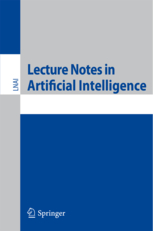Applied Research
Planning in Collaborative Stigmergic Workspaces
Abstract
The paper investigates how the engineered capabilities of structuring the knowledge encoded in collaborative workspaces affect the collective intelligence of its users. The investigation is made for the particular case of collaborative planning and is grounded on the theoretical framework of stigmergic systems. The knowledge structure encoded in collaborative workspaces in the form of a conceptual hierarchical task network is analysed by building a multi-agent simulation to evaluate the performance of different planning strategies. The results show that different representational complexities of collaborative planning knowledge have a great impact over the collective intelligence when the users are interacting directly or indirectly.

